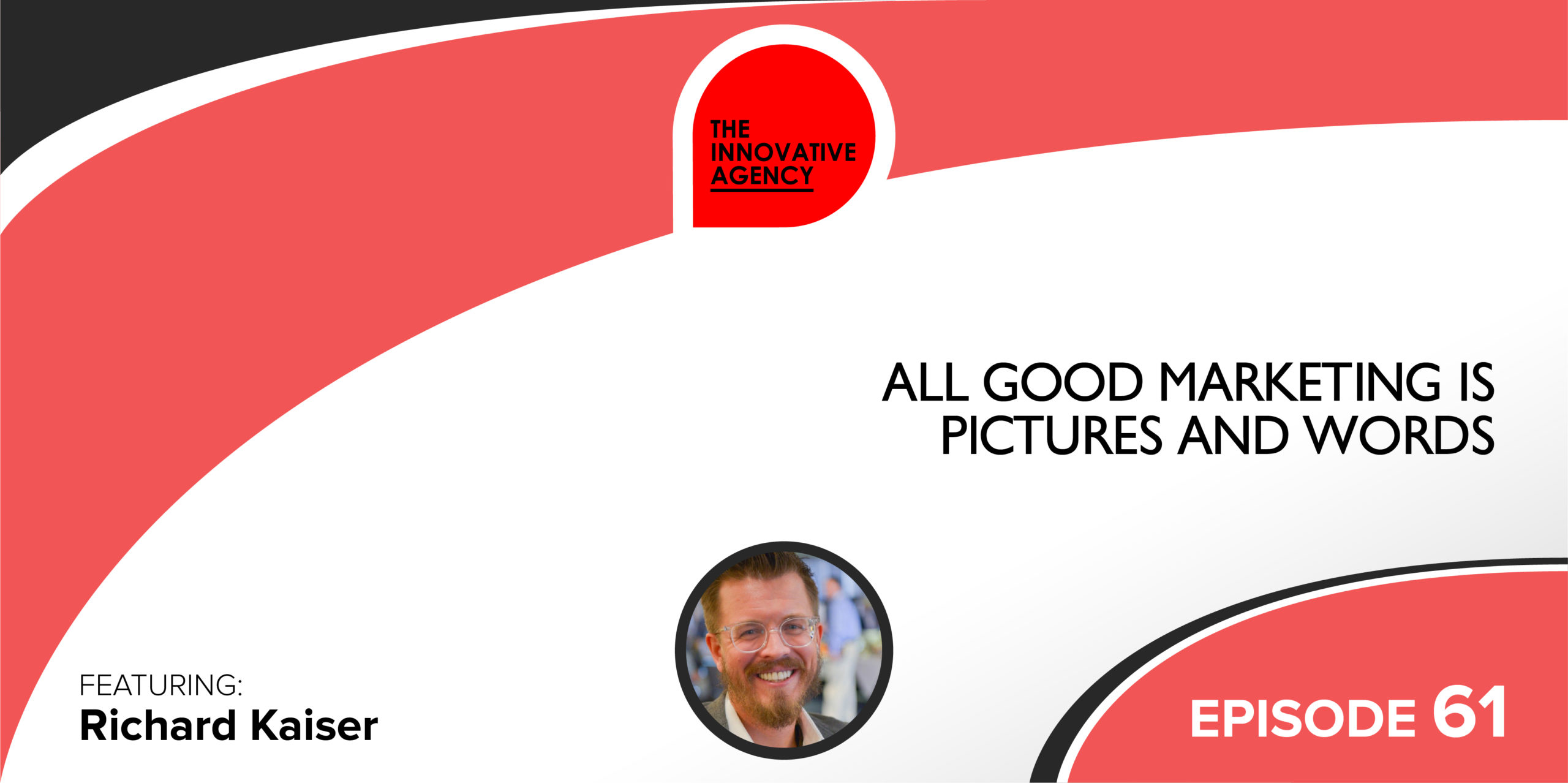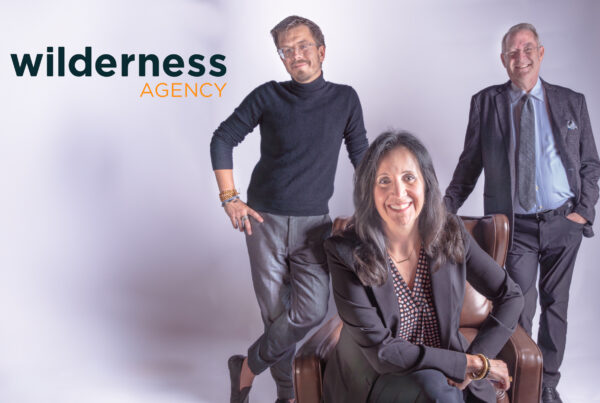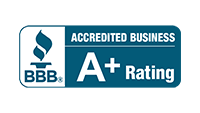
 Innovative Agency Podcast, Episode 21: All Good Marketing is Pictures & Words
Innovative Agency Podcast, Episode 21: All Good Marketing is Pictures & Words
0:07 Intro
The Innovative Agency Podcast is a podcast designed to help marketing agency leaders answer the question, what’s next in their industry? If you’re looking for actionable ideas about how to operate and grow Innovative agencies, you’ve come to the right place. Let’s get into the show.
0:25 Beginning
Sharon: Welcome everybody back to another episode of the Innovative Agency, it’s Sharon Toerek here with you again thanks so much for joining us today. We have got a great discussion today, planned for you, about a lot of things. Today’s guest is, I think, gonna be exciting because of his point of view and perspective on marketing in general and sort of how he’s built his agency. Words and pictures, that’s my preview for you. Words and pictures, and you’ll understand what that means in a minute, but I want to take a second and welcome Richard Kaiser to the podcast today. Richard is CEO and founder of the Wilderness agency which is based in my home state of Ohio in Dayton and Richard I want to say welcome thank you for joining us today on Innovative agency!
1:16 Richard is Introduced
Richard: Thank you very much for having me! I’m very excited to, you know, share some thoughts and philosophies with everyone on how we kind of built this thing of ours.
Sharon: Yeah, I think that’s going to be fun. So, tell us a little bit about the origin story of Wilderness and how you came to found it. And, I also want to hear about the first job you ever had, which you said was at age 8 and in manufacturing, I’m dying to learn more. So, tell us the story of Richard age 8 working in manufacturing.
1:50 Richard in Manufacturing
Richard: Yeah I mean it’s, uh, I discovered it is wildly uncommon in most settings but by the time you were, you know, eight years old growing up in kind of the middle Farm country part of Ohio at 8 you either went to go work on the farm or you kind of just flatten worked in the factories which are, which is ultimately what I did. So I started wanting stuff and I wanted the Green Day Dookie CD, which was probably a cassette tape at that time in my life, and so I got this job I was working in a factory, we were making, it was an award manufacturer so we made like different plaques and awards for business owners and things. And it was, it was a fantastic experience for me. It was a very small startup company and so I got exposure to the owner of the company and I helped create some different product ideas that were utilized. Did that until I was sixteen years old and then I found myself in the foodservice industry for another 8 years from 16 to 24. And finally kind of looked around and thought that, you know, I needed to go back to college and so I was going to go be a sales guy and that didn’t seem to be my passion. Ultimately I went to one of my professors and I was like I’m tens of thousands of dollars in debt and I need a better solution because I’m not going to be able to do this for the next 40 years of my life, so I need a plan B or I’m going to go jump off the roof. And Chuck looked at me and he’s like “You seem kind of crazy I think you might be a creative, read this book.” And it was Ogilvy on Advertising, and I read it cover-to-cover, quit my job the next day, and started taking a bunch of internships that, you know, over the past decade has kind of turned into and kind of manifested into the creation of wilderness agency.
Sharon: Wow, that is quite a pathway and, ah, all right so tell us what the early years are. Did it meet your expectations early on about what you thought it was going to be when you started?
3:55 Early Years
Richard: Oh, I mean no, right? Like most entrepreneurs, I was overly confident by that time I, you know, I had a certain level of competency within marketing and I thought “This is so easy I’m going to do this so much better than the prior agencies that I worked at, they’re such idiots I’m going to be so much better.” And then, about two weeks in I had this very hard-hitting epiphany of like “Oh my God I don’t know how to do so many things about running a business.”, right? How do you do payroll? Who do you even call to figure out unemployment stuff? So a lot of learning curve. I have described those early years as like, running naked and blindfolded through the woods. You just run into a tree and fall over and pick yourself back up and keep going.
Sharon: Yeah, so true, so that’s the entrepreneurial story, in a nutshell, especially the earlier years, I think for all of us.
Richard: Oh, for sure.
Sharon: So we were talking earlier and, about words and pictures, and this philosophy that you have about marketing and about running a marketing agency in general that I’ve heard it described in different language in the past as being platform-agnostic or being tech-neutral, but your point of view is that it is all just words and pictures. So tell me a little bit more about that. Tell me what you mean specifically.
5:34 Words and Pictures
Richard: We have this crazy tendency in our industry to make up words, to try to make all of this stuff sound so complicated that our clients could never possibly understand it. Right, like it’s this black magic and it’s not. The work we do is storytelling. We are trying to communicate our client’s story to a demographic of people who have a problem that our client could solve, right? And so what is storytelling? If we look way back, right, to the origins of our species we have people who are in caves who are drawing pictures trying to explain concepts right, and so all of it is just pictures and words. It’s art and its copy and we marry those things together. Somewhere along the line yeah we started adding code behind it but you can’t let the technology drive, right? It is critically important to understand the problem and then to figure out the right tools to get the right message in front of the right people and it’s that simple, and it’s something that clients can understand and relate to, right? They don’t need all of the superfluous languages around you to know what, how SEO works the best doesn’t matter to them. They need to know that you’re telling a story.
Sharon: Yeah, so let me tell you why I think that that point of view is so hard sometimes for agencies. Especially when they’re doing new business or when taking on new work from an existing client, and then you tell me what you think about this cuz I’m curious. The challenge a lot of them have, and we’ve helped a lot of agencies ink deals with clients and the challenge that they have many times is a client who comes to the table already with a pre-existing perception of the tactics that they need or the things that they want to build or, or what the message might be and they’re already locked and loaded with the platform, or the thing and not the storytelling. That’s a challenge because you’re already behind the 8-ball in terms of unraveling a lot of those expectations and perceptions. So how do you, do you as an agency just not take those clients on? Do you send them somewhere else? Do you have a process or a strategy for sort of unraveling them a little bit so that you can get them back to the words and pictures of it all first? What, what’s- cuz I know you’re a strategy first agency and so how do you deal with that?
Richard: I believe that every company is at a different level of sophistication with its marketing efforts, right? I worked with Fortune 500 companies who can’t even get their arms around SEO and I worked with start-ups who I’ve looked at and I’m like I can’t even help you, you guys are already crushing this just keep going. And so, if somebody comes to me with their the building half baked, but let’s finish that work and let’s get that up and get it launched, and then on the end of that or like doing kind of concurrent engineering, let’s figure out how we can Infuse some of our thoughts and beliefs into it. Because this isn’t- this should not be a sprint it’s a marathon, right? So if they already have ideas, let’s run with them, and then let’s also educate them on our philosophy as we build that relationship. I’m not looking for a one-night stand client. I want to find clients that we’re going to grow with, that we’re going to prove value and they’re going to listen, right, and accept some of our advice. Not all of it because they have some- they have that tribal knowledge of what has worked and hasn’t worked, right. Sometimes there’s some head trash ‘Oh well that doesn’t work we tried it before.’, right and so challenging that thinking and I’m like well, okay, well why didn’t it work? Let’s dig into that more. You know, did you have, you know, you have your buddy’s niece who’s like 14 trying to run your Google AdWord campaign? Yeah probably didn’t work out well, right? Did you have a strategy behind it or did you just dive into Facebook for 3 months, didn’t get the result that you were promised off of some ridiculous YouTube video of somebody who is selling snake oil? How do you get in there to start a relationship and then how do you find a pathway where you go together? Because it is a relationship, you know, it’s like any of our relationships with friends or family or loved ones. You build trust together.
Sharon: Yeah well, and I think that sort of leading with your understanding that you expect that every client does come to the table with a different level of understanding or experience. Some clients haven’t tried many things at all, some clients have tried a lot of things. So some of them, you know, have more of a track record than others and it’s good to be flexible about how you react to them, so that makes sense to me. And speaking of flexibility you’ve, in addition to really your focus on strategy as an agency owner, strategy first with clients, words and pictures first you’ve really built flexibility into your business model. By that I mean a good part of your professional team is contracted to you, right? They’re freelancers and you bring them in depending on your particular needs for a project, or a client when based on their expertise.
Richard: Yes I, that’s kind of the foundation of the business model was how do we scale, go up or down, and based upon the size of the project and based upon the size of the company. So if we have young startups I can pull some green talent, I can get things done fairly quickly and affordably, and if we have those Fortune 500 companies that we’re working with we can pull those veteran people who make everything Pixel Perfect. But then also that broad service offering, so a Facebook ad and a billboard are the same things to me. It’s just pictures and words. And so how do we pull in the right talent on the right thing? We don’t specialize. I’ve been coached to death from people who try to convince me that I needed to focus, and if I focus my business on just offering a website designed to the medical industry we would be exponentially more profitable. Where that may be true, that’s not the work I’m interested in. I like being able to do a lot of different things, and so being able to take that idea pictures and words and apply it to videography, or being able to, you know, put on an event. So we’ve done video projects, we’ve put events on for the Air Force. We’ve done partnerships with different educational partners. It really lets us be very fluid where our toolbox is not constrained to, you know, this is the last project we did so we’re going to keep trying to resell it over and over and over again. Into being able to say what is the problem and what are the best outlets to try and get the right eyeballs on our story?
13:15 Freelancers
Sharon: Right, well I think it’s something that agencies- I mean every agency that’s a client, at least of my firm, uses freelancing contract professionals to supplement their teams to certain extents. Some of them rely almost exclusively on them. Some of them bring them in for specific expertise or types of clients. What differs among them though, is sort of the level of transparency or communication they build around that with their clients. Some of them are completely upfront about it and some of them are more comfortable positioning these people as part of their regular team, and so where do you stand on that? How do you, sort of, have the conversation with the client? Do you- are you seamless with them about it and do they perceive these people to be just a part of the Wilderness team? Or do you- are you transparent about your model when you’re doing prospecting in business development? How do you handle that whole thing?
Richard: So, it has evolved because where, when I first started, I was overly transparent about it and I have honestly like, utilized it as a value proposition. Of like, look, the value proposition that we bring to the table is that we don’t have all of this crap, so we’re not bloating your hourly rate, right? And so we’re able to provide services comparable to what, you know, you can get in major cities but at less of a cost, simply by the fact that, you know, one, a lot of our contractors are based out of Dayton Ohio which has one of the lowest cost of living in the country. So, you can outsource to Ohio. It’s not like people in LA have a better version of Photoshop than we do, and they’re certainly not more creative because they spend four hours a day in traffic.
Sharon: So true!
Richard: So, yes. There are different value propositions that we brought to the table. Ultimately what I discovered was no one cared. They just don’t care. They don’t care how the sausage is made, they just want to know that it tastes good. So where, you know, people worry over should we tell them they’re a freelancer or not, I don’t care because none of them care. Most companies that have ever built a building use a GC, or general contractor, where they know that the people who are building the building aren’t necessarily employees of that GC. It’s not new. It’s also, it’s a model that existed on the East Coast and West Coast, and I’m not a genius who created this idea. I just identified that no one was really doing it very strongly in the region and so I could bring this model here and it’s been very successful.
Sharon: Well I think- I think that’s a good analogy. I’ve heard the analogy, of some agencies describing it as sort of the old Hollywood studio system. Where they would contract with certain actors or directors or professionals for certain competencies or types of films. And that’s, as an agency, how they were looking at it. They would hire certain freelancers who had specialties or expertise in certain areas, or for certain types of clients or projects. And so, different description of the same model but your general contractor analogy works just as well, and I think it’s- it’s a perfect segue into… Even though you said that the firm doesn’t really niche down into a particular type of work, you do have a couple of verticles that you spend a lot of time in. And one of them is one that maybe isn’t perceived as, to use your words from our earlier conversation, not mine, sexy and that’s the manufacturing industry. So, talk a little bit about your perspective on doing marketing work for an industry that it can be hard to make look glamorous.
17:30 Ugly Babies
Richard: I mean yeah, I describe a lot of my manufacturing clients as ugly babies. They’re the ones that most agencies don’t go after that work. Because, you know, that work doesn’t win awards. I built this company off of a mantra that we were going to do great work that helps grow companies and put people back to work. Which was more of a mantra that was relevant during, you know, 10 years ago when we were in the 2008 recession. Today we’re seeing kind of a different issue where it comes to just employers being able to find the talent. Which is, for these manufacturing companies, a monumental task. We have a pool of workers who, you know, students over the past 20 years have been guided that manufacturing is not a good job, right? And it was this perception that you got the grizzly sweaty guys who are lifting heavy machinery all day, but that’s not really the case anymore. Those jobs still do exist to some extent, but some of the manufacturing jobs that are coming onto the scene and growing are RN Advanced manufacturing. And so there are manufacturing companies that are doing things with, you know, additive manufacturing creating basically replacement parts for spines for surgery. We have a client who’s working and using advanced composites that are being used to literally revolutionize the construction industry. They’re using a composite material that replaces steel i-beams and different construction formats, wherein they’re able to put all of- basically put all of these materials together that are so light, like two men can pick them up and you can use hand tools to manipulate the materials. So, to cut them to size and things. And so what you’re left with is a really fancy erector set, right? Where you can be, kind of bringing these things to a job site not need a crane, not need a welder. Be able to fabricate and kind of put the bolts and pieces together and they’re cutting time schedules by up to two weeks in certain applications. They’re saving companies hundreds and thousands of dollars per project, and so those are interesting stories and how do you communicate that? It’s all storytelling and so we’ve gone in and provided them with a much more modernized website. We have created a culture video that I think is on par with the things I’ve seen from Fortune 500 companies, and they’re an emerging business that’s doing 15 million in revenue right now and will continue the triple growth year-over-year for the foreseeable future.
Sharon: Yeah and I like in- I mean I think this is true in any industry, but especially so in an industry like manufacturing. Where, you know, I perceive the talent acquisition problem as more challenging probably than the customer acquisition problem, and that is that it’s, the talent problem is a much bigger marketing question to your point, to your examples, then the customer acquisition question. I mean yeah, when you’re trying to get business from customers you have to- you’ve got price competition and there are lots of other, lots of other logistics that have to be addressed. And pricing and stuff like that, but the bigger challenge is finding young talent and professionals to come in and evolve manufacturing to that next level. And so that’s a marketing problem and so I think it’s just a great example of how smart storytelling, words, and pictures, to use your phrase is- has the power to completely change the perception of an industry that might not be perceived as glamorous. And, and to highlight it in a way that really no other discipline can do. There really isn’t any other discipline that can solve that problem. I mean HR can’t solve it. You can write a really beautiful job description, but they can’t really make the job look appealing unless they understand marketing, right? So I think it’s just, I think it’s an excellent case example of how agencies can take what seems like a not exciting category and create some real magic out of it.
22:22 Recruitment Issue
Richard: It’s fascinating that the recruitment issue, like now that we exist in a world where we have been living under 5% unemployment for so long that the poaching and stealing of people are insane. And so were the traditional fools that HR has tried to employ using Headhunters Etc. I have- I have clients that were spending $20,000 to a headhunter to get an engineer. The number of people I can reach with $20,000 via digital tools and a website that never sleeps and is constantly working and drip campaigns… It’s, it’s absurd, right? We have all of these amazing tools we can target people on LinkedIn at competitors with the job titles that we want. We can put a great message about their company culture in front of that person who, you know, might not be happy or we identify companies where they’re paying less than we are or don’t provide the same level of benefits. And so if you’d look at recruitment, recruitment, and sales those processes are not that far, you know? There’s not a big Delta between those two. We’ve been applying the same thinking to how marketing has been used for sales to how marketing can be used for recruitment efforts and more than anything that is going to be a huge growth area for Wilderness agency in 2020. And honestly, any agency that just adopts this thinking.
Sharon: Yeah, well I totally agree with you it’s- it is one of the biggest marketing challenges for even industries that are- well, industries that are perceived as glamorous and sexy to work in have a different problem and that’s the poaching problem. And I’m sure manufacturing and maybe less glamorous seeming Industries have it too but, it’s much more rampant in my experience in the marketing world. It’s the number one reason why we have to build in non-solicitation clauses into master service agreements because there’s a lot of movement of talent from agency to client and back the other way as well. But yeah, I just said it’s a fascinating example to me how you can take marketing and use it to turn a perception on its head in a great way, in a great way.
Richard: It’s just storytelling, right? And so how are we providing clients with those tools to share that story.
25:01 Outro
Sharon: Absolutely, absolutely well said. Well, I really have enjoyed learning, and I think our listeners today will enjoy learning about your journey, your business model, your philosophy about how to sort of demystifying some of this for our clients, and probably some more team members in the process. And so this has been a really great conversation, and so Richard Kaiser, I really appreciate you being on the podcast today.
Richard: I greatly appreciate the opportunity, Sharon.
Sharon: If people want to find out more about Wilderness Agency or reach out to you and connect, what are the best places they can do that?
Richard: Wilderness agency.com has a lot of information about our business on there, but people are always welcome to reach out directly to me my email is just Richard@wildernessagency.com.
Sharon: Terrific! Well, we really appreciated having you on the podcast and so, Richard, thank you so much for joining us today on the Innovative agency!
Richard: Thank you so much.
Sharon: And we’ll see the rest of you on our next episode. Thanks for joining us today.

 Innovative Agency Podcast, Episode 21: All Good Marketing is Pictures & Words
Innovative Agency Podcast, Episode 21: All Good Marketing is Pictures & Words 



